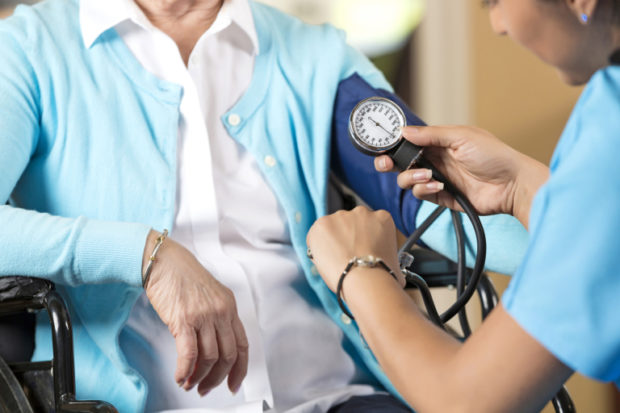Experts advise how seniors, those with medical conditions can stay healthy amid COVID-19 crisis

Image: Steve Debenport/IStock.com via AFP Relaxnews
While most of us know that COVID-19 can affect seniors more seriously, it can also cause more serious complications for other vulnerable people in the population, such as those with other underlying health conditions.
To help people in these higher risk categories stay informed and protect themselves, infectious disease specialist Dr. Alan Taege from Cleveland Clinic, Dr. Mary Tinetti chief of geriatrics at Yale and international expert in care for the geriatric population, and Dr. Richard Marottoli medical director of the Dorothy Adler Geriatric Assessment Center at Yale New Haven Hospital, have released their advice and answers to some common questions and concerns.
Seniors over the age of 60, and particularly over age 70, are at highest risk for death or severe illness with COVID-19, say Drs. Tinetti and Marottoli. Dr. Taege also adds that as the coronavirus that causes COVID-19 is new, we don’t yet understand exactly how it impacts specific groups of high-risk people, but, in addition to seniors, those who are thought to be most susceptible to serious complications of COVID-19 include people who are taking medications that suppress the immune system or who suffer from conditions such as cancer, hypertension. lung disease, diabetes, heart disease or other conditions that compromise the immune system.
All of the doctors agree that those who are older or immunocompromised should isolate themselves at home. Don’t go out to visit friends or family. If you live with other people, then Dr. Tinetti and Dr. Marottoli advise keeping a distance of at least six feet between you at all times. They also add that although it’s hard, no visits from grandchildren.
To help the days still feel “normal,” keep following a routine, say Dr. Tinetti and Dr. Marottoli. Cook, eat, exercise, take a shower, nap, go to bed and wake up just as you would on other days. To maintain good health try to eat healthy foods, avoid junk food and limit alcohol intake to one glass (or less) per day. Also try to move a little, if you can, for example walking around the house a few times a day; avoid the temptation to sleep in or sit on the couch all day.
If you have medical appointments to go to, Dr. Taege recommends calling to ask if it is possible to reschedule appointments, or do them virtually or over the phone. Dr. Tinetti and Dr. Marottoli agree, saying that it’s best to avoid health care offices unless absolutely necessary.
If you’re taking immunosuppressive medications, Dr. Taege stresses that you shouldn’t stop taking them without talking to your healthcare provider first. Stopping your medication could also cause other problems. You should also ask your healthcare provider if it’s possible to get an advance supply of your medications, in case you need to stay home for more than a few weeks. You can also ask your healthcare provider if you can order medications online and have them shipped to your home.
Dr. Taege also advises having enough groceries and household supplies on-hand so that you could comfortably stay home for a few weeks if you had to. Again, you could consider asking stores if you can order online and have them delivered so you don’t have to go out. If you must go to the supermarket, say Dr. Tinetti and Dr. Marottoli, go very early in the morning when fewer people are there and the store is at its cleanest, and keep 6 feet away from people.
Finally, make a plan for who will take care of you if you do get sick, says Dr. Taege. All three of the experts recommend regularly keeping in touch with loved ones in the high-risk category, especially those who live alone, via phone, email, Skype, FaceTime or social media. You could also help them by picking up their groceries or prescriptions and dropping them off on the doorstep so they do not have to go out. JB
RELATED STORIES:
To find COVID-19 cure, researchers worldwide given access to supercomputers
For more news about the novel coronavirus click here.
What you need to know about Coronavirus.
For more information on COVID-19, call the DOH Hotline: (02) 86517800 local 1149/1150.
The Inquirer Foundation supports our healthcare frontliners and is still accepting cash donations to be deposited at Banco de Oro (BDO) current account #007960018860 or donate through PayMaya using this link.